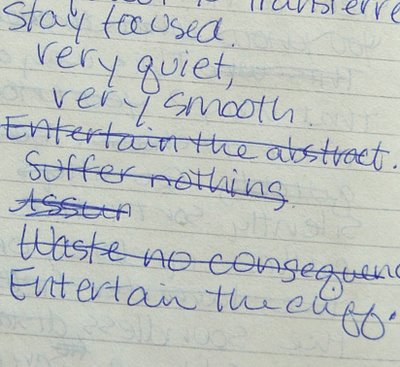Tanka time
Last week I extolled the pleasures of tanka, the 5 line Japanese lyric poem. Tanka Online provides a great overview. I encouraged others to tanka, and share their work here.
I'm pleased to post a poem by Marjorie Power, of Corvallis, Oregon. She offers a tanka mosaic, a series of tankas linked together in mood, tone and story. She strays from the traditional count of 5-7-5-7-7 syllables per line, and maintains instead 31 syllables per stanza. This poem is soon to be published in the The Hawaii Pacific Review.
Spring Dusk, Yachats
Salal blooms –
pale pink droplets, red stems.
Its leaves go gray with fungus.
My cousin, too, is uniquely
beautiful and unhappy.
If you love someone
who has everything
but still sounds hollow,
after sunset listen only to the ocean.
Gather shadows.
Try a narrow path
used by rabbits and deer.
Disappear among shore pines
and Sitka spruce. Be your absence.
Be present to that.
Return to the beach
where the ocean grows dark
and the tide delivers your name.
Where the hollow might stroll
and the new moon rises.
Along the rocky trail,
a blast of fragrance
offered by wild roses
while their cultivated sisters
hunker down, play it safe.
— Marjorie Power
Coincidentally, I am writing spring, too. I stray a bit from the traditional line count (and take comfort in first knowing the rules, and then breaking them). I like the idea of linked tankas, the way in which they stand strong as one stanza, and gather even more strength as a group. I'm not sure, with these, if they are better individually or linked. It wasn't until the end of the week — after I had written on, about and through gloomy weather — that I realized a theme.
Pulling Spring
Beauty surrounds
I press against wind and cold
fight against ocean
no longer see abundance
just this lashing fatigue
This static grey day
wears away the art in me
all color scrubbed
faith fades, milky and weak
is this winter’s gloom, or mine?
The sky stays in place
everyday, like a job, shows
up, pays attention
seeks no answers beyond the
ether of the everyday
— Drew Myron
Burst, blue, blooms
Crocus burst from damp earth
moody sky their only demand
how little it takes
framed by light and hope
to close winter’s heavy door
Sky turns from slate to shine
I want to wear this weather
Spring, I say, show me
a bit of blue, a dash of warm
She opens a closet of blooms
— Drew Myron
 Saturday, March 21, 2009 at 9:56AM
Saturday, March 21, 2009 at 9:56AM  2 Comments |
2 Comments | 

